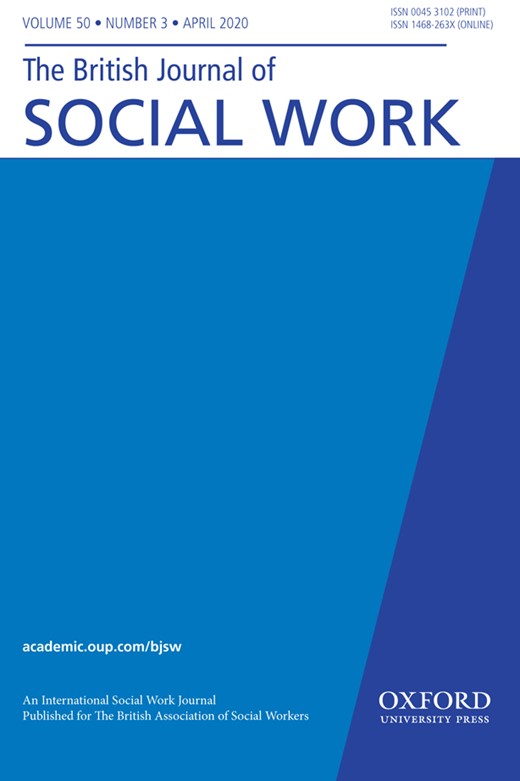-
Views
-
Cite
Cite
Alice Wickersham, Shilpa Nairi, Rebecca Jones, Brynmor Lloyd-Evans, The Mental Health Act Assessment Process and Risk Factors for Compulsory Admission to Psychiatric Hospital: A Mixed Methods Study, The British Journal of Social Work, Volume 50, Issue 3, April 2020, Pages 642–663, https://doi.org/10.1093/bjsw/bcz037
Close - Share Icon Share
Abstract
Compulsory admission rates under the Mental Health Act (MHA) have been on the rise for many years despite representing a costly and coercive approach to psychiatric care. There is therefore an urgent need to minimise compulsory admission rates using interventions based on known risk factors for detention. However, risk factors in the MHA assessment process have been under-researched.
A mixed methods service evaluation was conducted in one inner London NHS Trust. A retrospective cohort study used routinely collected assessment records to model potential risk factors for detention. Local assessors were interviewed to explore factors that might help or hinder detention minimisation.
Assessments were less likely to result in detention when professionals other than the assessing team were in attendance, although this association weakened after adjusting for potential confounders. Interviewed assessors identified factors that could contribute to detention minimisation in the assessment process, in general service provision, and in wider society.
Some local assessment processes could contribute to minimising detention rates, such as community team participation in assessments. Challenges posed by limited resources and community and inpatient care were particularly evident. Consideration of these might also help reduce detentions.




